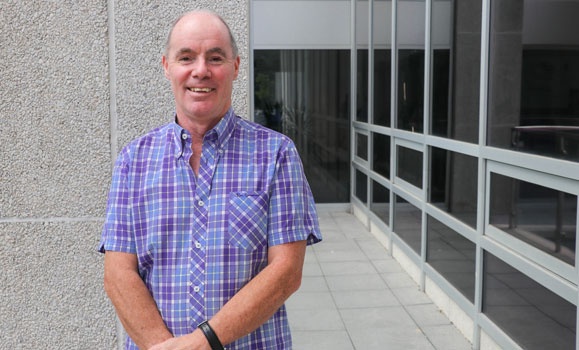Policy impact is an integral part of the fabric of the Schulich School of Law. Our work is grounded in shaping public policy through interdisciplinary, collaborative research that has a positive, real-world impact beyond the law school. Today, we’re looking at Professor Richard Devlin’s work in legal ethics, and how it’s helping to shape the regulation of legal professionals in Canada.
Every individual and institution needs to be subject to mechanisms of accountability. Judges are no different. Professor Richard Devlin examined this issue as co-editor�����Ի� co-author of the 2017 book Regulating Judges: Beyond Independence and Accountability, which provides a framework that identifies multiple variables for the assessment of an effective and legitimate judiciary.
“An important way to conduct that assessment is to consider different ways in which jurisdictions establish, support,�����Ի� regulate their judiciaries,” says Devlin, whose policy work has mostly focused on the regulation of the legal profession and the judiciary. His research attempts to hold those who exercise power to standards of accountability, transparency, and equality. “A thriving and mature democracy requires openness and innovation,�����Ի� academics hold the public trust to improve responsible�����Ի� responsive governance.”
In 2011, Devlin was the founding president of the Canadian Association of Legal Ethics/Association canadienne pour l’éthique juridique (CALE/ACEJ), where he currently chairs the board. Recently CALE/ACEJ has been making submissions to the Canadian Judicial Council on revisions to the Ethical Principles for Judges. One vital topic is whether this document should be given the status of an enforceable code of conduct or remain just a set of aspirational guidelines.
As faculty, we have the privilege and benefit of academic freedom, and this imposes a responsibility on us to promote the public interest in the regulation of Canadian judges and lawyers.
Another particularly hot topic is the issue of judges returning to practice after retirement, which has been catapulted into the limelight by the SNC-Lavalin affair. The issue at play is that while at one level they are retired and they should be free to do as they wish, another is that they are using the credential of being a judge to maximize their own and their clients’ self-interest.
Devlin’s research extends deeply into the Canadian legal profession’s codes of conduct. As a member of the Nova Scotia Barristers’ Society’s Code of Ethics Committee, he contributed to the Federation of Law Societies of Canada’s Model Code of Professional Conduct, as well as Nova Scotia’s Code.
�ᾱ�����ɴǰ������ɾ��ٳ� Professor Colin Jackson and Brent Cotter of the University of Saskatchewan’s College of Law on the duty of loyalty has influenced the Conflicts of Interest chapter of the NSBS’s�����Ի� the Federation of Law Societies of Canada’s Codes of Conduct. He has also collaborated with Professors Jocelyn Downie�����Ի� Sheila Wildeman on successfully arguing for changes to be made to the Duty to Report section of the Codes of Conduct to eliminate stigmatizing references to mental disability.
“As faculty, we have the privilege and benefit of academic freedom, and this imposes a responsibility on us to promote the public interest in the regulation of Canadian judges and lawyers,” says Devlin. “You fight the battles that you think you can win. There’s no predictability in progress, but you have to continue to engage with a sense of optimism.”
Recent News
- Associate Professor Andrew Flavelle Martin ft in "Immunity for Alberta attorney general necessary to ward off ‘political activism,’ attorney general says"
- Professor Emeritus Wayne MacKay ft in "N.S. RCMP says it was already tackling illegal cannabis before minister's directive"
- Professor Emeritus Wayne MacKay ft in "Mi’kmaq chiefs and law expert weigh in on Nova Scotia’s cannabis directive to police"
- Professor Emeritus Wayne MacKay ft in "Nova Scotia wants crackdown on illegal cannabis, asks Mi'kmaq chiefs for support"
- Professor Emeritus Wayne MacKay ft in "What's at stake as the Supreme Court weighs changes to the Jordan limits for how long a trial can take"
- Meet Instruction & Public Services Librarian Kristan Belanger
- Professor Emeritus Wayne MacKay ft in "Hard lessons"
- Professor Rob Currie ft in "Lawyer accused in Ryan Wedding case appears in court as part of extradition proceedings"

